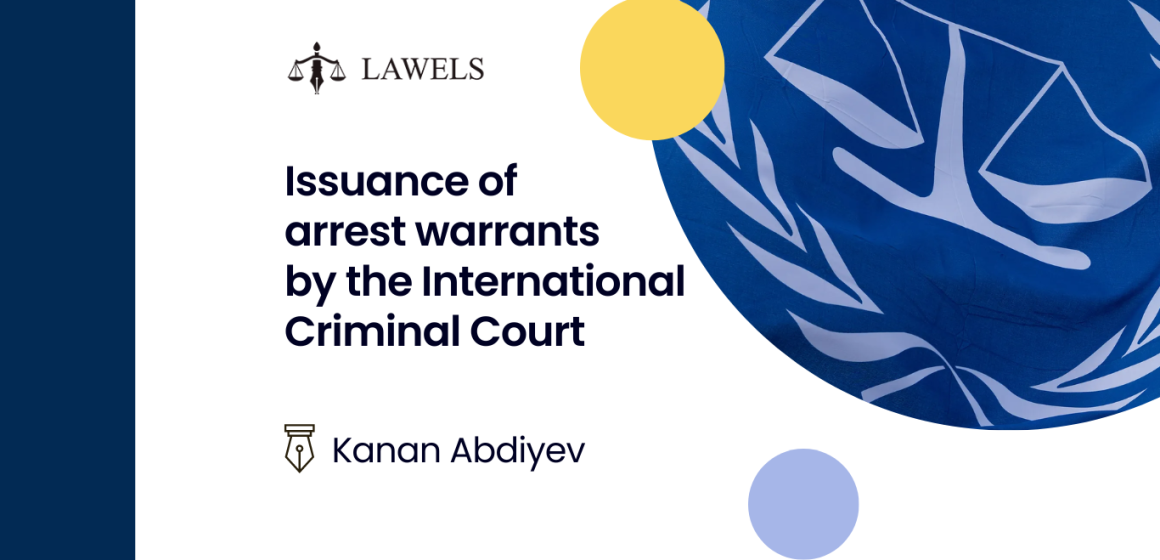The International Criminal Court has jurisdiction over individuals who bear criminal responsibility for the most serious crimes of concern to the international community: war crimes, crimes against humanity, genocide, and, as of 17 July 2018, the crime of aggression. On the basis of the investigations, the Prosecutor can apply for the issuance of a warrant of arrest by the Pre-Trial Chamber overseeing the proceedings of the relevant situation under investigation. To issue a warrant, the judges must be satisfied that there are reasonable grounds to believe that the suspect has committed a crime within the jurisdiction of the ICC. The judges then issue a warrant of arrest, to ensure that the person appears at trial, that the person does not obstruct or endanger the investigation or the court proceedings, or to prevent the person from continuing with the commission of that crime or a related crime (Article 58(1)(b) of the Statute). An arrest warrant remains in effect unless the Chamber decides otherwise (Article 58(4) of the Statute). As an alternative, the judges might issue a summons to appear if they are satisfied that this would be sufficient to ensure the person’s appearance.
To date, 15 persons for whom the International Criminal Court has issued warrants of arrest remain at large. Some of these arrest warrants were issued by the ICC over a decade ago. According to the ICC Office of the Prosecutor investigations, there are reasonable grounds to believe that some of the most serious crimes of concern to the international community proscribed by the Rome Statute were committed by those persons. These arrest warrants relate to crimes allegedly committed in six ICC situation countries: the Democratic Republic of the Congo, Uganda, Darfur (Sudan), Kenya, Libya and Côte d’Ivoire.
States Parties to the Rome Statute have an obligation to cooperate fully with the ICC (article 86 of the Statute) and to ensure that there are procedures available under their national law to execute all cooperation requests from the Court made under Part 9 of the Statute (article 88 of the Statute). Additionally, States may be obliged to cooperate with the ICC by virtue of UNSC resolutions referring to situations to the ICC. This applies also to requests for arrest and surrender from the ICC. Such requests are to be executed in accordance with the applicable provisions of the Rome Statute, namely articles 59 and 89, and procedures available under national law.
Sudan’s Omar al-Bashir was the first head of state to be arrested under the Rome Statute. In 2015 Sudanese President Omar Al Bashir visited the country to attend a summit of African Union heads of state. In terms of South Africa’s ICC obligations, it was obliged to arrest Al Bashir, who had been indicted for violations of international humanitarian law and human rights law in Sudan’s Darfur region. The government, then under the presidency of Jacob Zuma, refused to arrest him, citing immunity from prosecution for sitting heads of state under international law. Although the decision was made in 2009, Al Bashir was handed over to the court by the new government after he was ousted in a coup in 2019.
When the Zuma administration refused to arrest Al Bashir, it landed the government in judicial hot water. South Africa’s Supreme Court of Appeal found that it had violated both international and domestic law. Following the ruling of the Supreme Court of Appeal, Zuma’s government notified the United Nations secretary general of its intention to withdraw from the Rome Statute. This ill-advised move was challenged in the High Court in Pretoria. It ruled that the notice of withdrawal was unconstitutional due to the absence of prior parliamentary approval. Consequently, the government “withdrew from the withdrawal”. In 2017, the ICC found that South Africa had failed in its obligations under the Rome Statute towards the court by not arresting and surrendering Al Bashir. The court, however, decided not to pursue the matter further for pragmatic reasons. It also reasoned that to refer South Africa to the United Nations Security Council for noncompliance “would not be an effective way to foster future cooperation”.
On 17 March 2023, Pre-Trial Chamber II of the International Criminal Court issued warrants of arrest for two individuals in the context of the situation in Ukraine: Mr Vladimir Vladimirovich Putin and Ms Maria Alekseyevna Lvova-Belova. Russian President Vladimir Putin for alleged war crimes regarding the unlawful deportation of children from Ukraine to Russia. Such acts are war crimes under two articles of the Rome Statute, which established the court. The crimes were allegedly committed in Ukrainian-occupied territory at least from 24 February 2022. There are reasonable grounds to believe that Mr Putin bears individual criminal responsibility for the aforementioned crimes, for having committed the acts directly, jointly with others and/or through others, and for his failure to exercise control properly over civilian and military subordinates who committed the acts.
Mr Putin faces arrest if he sets foot in any of the 123 signatory states to the statute. Of these, 33 are African states. The issue could come to a head in August when South Africa is set to host the 15th summit of Brazil, Russia, India, China and South Africa (BRICS) bloc in Durban. As the head of a member state, Putin has been invited to attend. But as a member of the ICC, South Africa is obliged under Article 86 of the ICC statute and domestic law to cooperate fully by arresting the Russian president. This is not the first time the country has faced such a dilemma.
Escobar Hernández shows in the Seventh report on the immunity of State officials from foreign criminal jurisdiction that heads of state have great immunity. It appears that the belief among states in protecting their heads of state from criminal prosecution is stronger than the Rome Statute obligation.
Although Ukraine recognizes the jurisdiction of the ICC, it seems surprising to issue an arrest warrant for the president of a state that does not recognize the jurisdiction. In my opinion, even if Mr Putin enters the territory of a Rome Statute member state, the probability of arrest of the Russian president is low (Ms Maria Alekseyevna can also be attributed).
Sources:
- International Criminal Court. “Situation in Ukraine: ICC judges issue arrest warrants against Vladimir Vladimirovich Putin and Maria Alekseyevna Lvova-Belova”. Press release on 17 March 2023. The URL is accessible here.
- THE CONVERSATION. Claudia Lorenzo Rubiera. “ICC arrest warrant for Vladimir Putin: a king-size dilemma for South Africa“. Published on 28 March 2023. The URL is accessible here.
- Concepción Escobar Hernández. UN. International Law Commission. Special Rapporteur on the Immunity of State Officials from Foreign Criminal Jurisdiction. “Seventh report on the immunity of State officials from foreign criminal jurisdiction“. [New York]: UN, 18 Apr. 2019, 75 p. The URL is accessible here.
The articles on the LAWELS platform are not, nor are they intended to be legal advice. You should consult a lawyer for individual advice or assessment regarding your situation. The article only reflects the views of the author.


